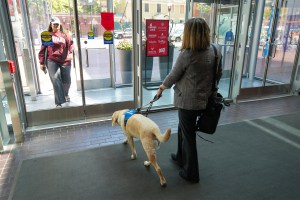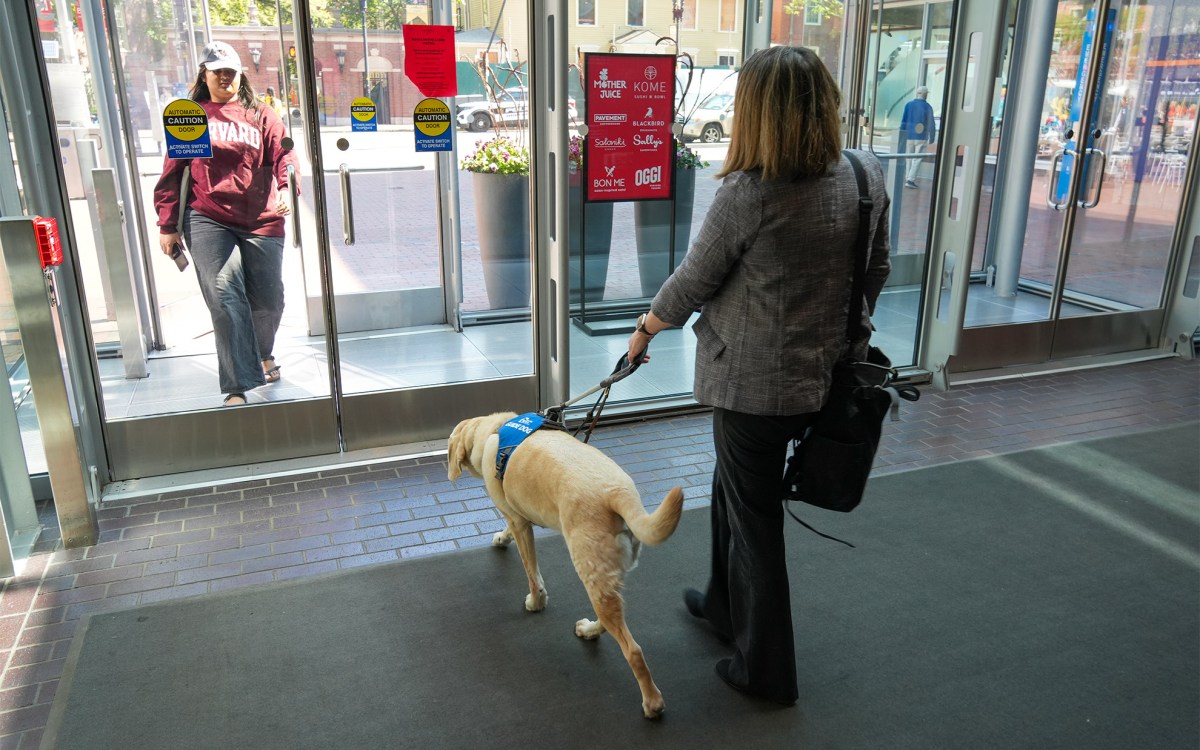Food for thought, and testing
Health and safety ninja Valerie Nelson makes sure campus meals are safe
Far from the beaten path of Harvard Square, with its austere libraries and scurrying students, Valerie Nelson is freezing food.
Not just any food, but some of the University’s food, which is kept for an undisclosed amount of time in an unidentified location, all in the interest of safety and public health.
Nelson is a safety ninja. You might’ve seen her, though most likely not. She’s one of a group of clandestine food inspectors who show up unannounced at some of Harvard’s most publicized events, including Commencement. She was there, sampling the catering trays while using individually wrapped tongue depressors — “Much to the dismay of people serving wonderful things like filet mignon,” she revealed — and was in and out before anyone could stop short, exiting into a haze of fog.
“Ninety percent of what I do is under the radar,” said Nelson, whose office is on the outskirts of campus. “It’s a part of the protection of the health and safety of the community that people are not aware of, but it’s happening behind the scenes all the time.”
Food samples are refrigerated for three days (most food-borne illnesses emerge during that time, Nelson said) before being frozen, or “archived” for later testing should a need arise.
A registered sanitarian, Nelson is public health manager for Environmental Health and Safety (EHS) at the University. She has a litany of responsibilities, but mostly oversees food safety. She’s on call 24 hours a day, seven days a week, 365 days a year. Her program consists solely of her and one part-time staffer.
“We’re a one-and-a-half-person team,” she said, though she regularly enlists the help of EHS colleagues who are industrial hygienists, chemists, and biologists.
Her team conducts unannounced food safety audits, and her coverage includes the campus’s residential and retail dining spots, Crimson Catering, the Harvard Faculty Club, FAS student grills, and the Dudley House Co-op. “We provide feedback and training based on the results of those audits,” she said.
The inspections are less scary than they might seem. Nelson ensures that food is correctly prepared, stored, and served. She works with outside caterers, makes sure they are properly credentialed, and monitors food recalls by the Food and Drug Administration. “We bounce that information out to others so they can check their products and not serve a food that may be potentially unsafe,” she said.
But Nelson acknowledges that even outside the office her job has its occupational hazards.
“I’ll go to a potluck supper, look at the potentially hazardous foods, and determine which ones I think are safe to eat,” she said with a laugh.
Before coming to Harvard, Nelson worked as a city health inspector. “People always asked me where they shouldn’t eat,” she said. “Due to confidentiality, I could never reveal that, so instead I just told them to watch where I go to eat on Friday night and follow me there.”
An avid swimmer, Nelson relishes Massachusetts’ lakes, though she sometimes considers the transmissibility of influenza via waterfowl. “I don’t think most people worry about those things,” she joked. “My job does affect me. It’s hard for it not to.”
Her advice to those of us cooking today: “It’s important to keep food refrigerated at 41 degrees or below, and to wash your hands before you start. My motto is: Prevent.”




